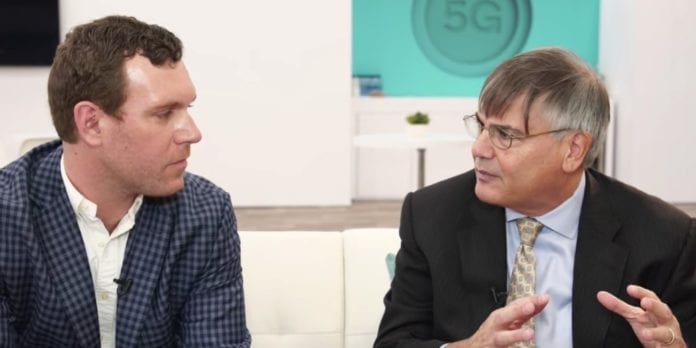Qualcomm spectrum chief on C-V2X, NR-U, DSS and other 5G mega trends
During Mobile World Congress Los Angeles, Dean Brenner, Qualcomm’s senior vice president of spectrum strategy and technology policy, sat down with RCR Wireless News to discuss some of the major technology trends he sees as driving 5G in the near-term.
Dynamic spectrum sharing (DSS) has been tapped by several major operators to scale 5G coverage by using a software update to enable the simultaneous operation of LTE and 5G in the same band at the same time, essentially avoiding the need to re-farm spectrum.
“Instead of having to wait for spectrum to be cleared of all the 4G users before 5G can be launched…what DSS does is says, no, we’re going to be able to use the same spectrum for both 4G and 5G,” Brenner said “So all of a sudden, with the flip of a switch…all of sudden if you have a 5G device that 5G icon is going to be on like all the time wherever you go.”
Another major trend Brenner is tracking is the operation of 5G in unlicensed spectrum. 3GPP is working to include the technical details of what’s called NR-U for 5 GHz and 6 GHz in the upcoming Release 16. This includes a non-standalone mode–think LAA for 5G NR, and a standalone mode–akin to 5G MulteFire.
“It’s undeniably that the use of cellular in unlicensed spectrum, it was a major factor in improving mobile broadband using 4G,” Brenner explained. “So for 5G we said, OK, instead of having to wait until the sixth, seventh, eighth version of LTE, let’s develop a technology for 5G from the beginning that is designed for unlicensed spectrum. I’m happy to say kind of the controversy from a public policy point of view, we’re really beyond. Cellular is going to use unlicensed spectrum.. We’re going to do it because we want people to have better, faster mobile broadband.”

